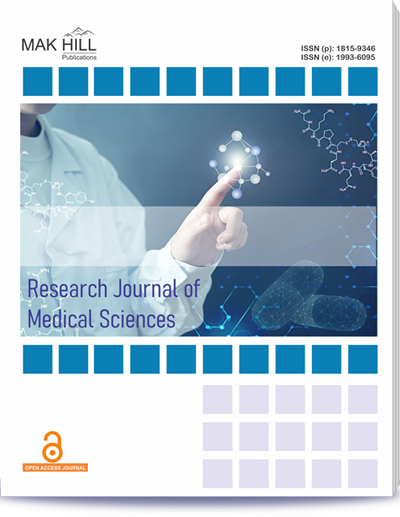
Research Journal of Medical Sciences
ISSN: Online 1993-6095ISSN: Print 1815-9346
Abstract
The prevalence of chronic non‐communicable diseases, notably hypertension and diabetes, is rising globally, posing significant public health challenges. This study evaluates medication adherence among individuals with type 2 diabetes mellitus (T2DM) and hypertension in a tertiary healthcare center in central India, identifying factors contributing to non‐compliance. A prospective cross‐sectional study was conducted at Department of General Medicine, Sri Aurobindo Medical College and P.G. Institute, Indore. With 300 participants diagnosed with T2DM or hypertension. The Morisky Medication Adherence Scale (MMAS) was used to assess adherence levels. Data on demographics, education, employment, socioeconomic status and healthcare utilization were collected and analyzed. Among 300 participants, 59.13% had hypertension alone, 21.15% had diabetes alone and 19.71% had both conditions. Adherence levels were high in 8%, moderate in 24% and poor in 68% of patients. Major non‐compliance factors included financial constraints and forgetfulness. Only 41.2% of diabetic patients and 26.8% of hypertensive patients took all prescribed medications the day before the interview. Disease control was significantly better in patients with high adherence. Medication non‐adherence is prevalent among patients with T2DM and hypertension, primarily due to financial constraints and lack of symptom awareness. Effective interventions, including family involvement and affordable medication access, are crucial to improve adherence and health outcomes.
How to cite this article:
Prashant Jain, Toshi Tiwari and Brijesh Verma. Assessment of Medication Adherence among Patients with Hypertension and Diabetes Mellitusc in Tertiary Health Care Centre.
DOI: https://doi.org/10.36478/10.36478/makrjms.2024.7.588.594
URL: https://www.makhillpublications.co/view-article/1815-9346/10.36478/makrjms.2024.7.588.594